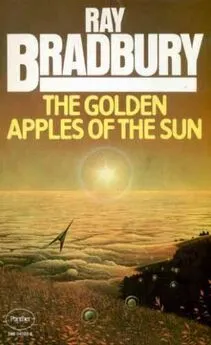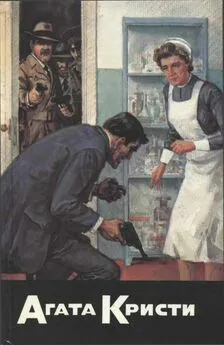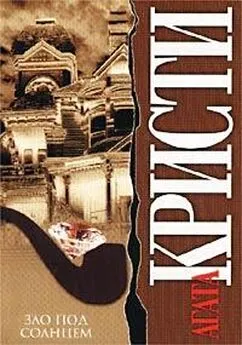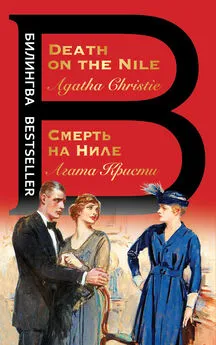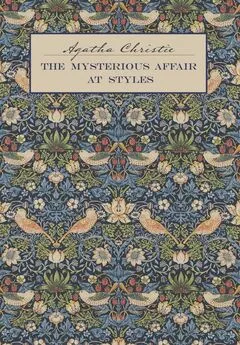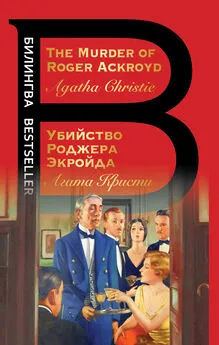Агата Кристи - Зло под солнцем / Evil Under the Sun
- Название:Зло под солнцем / Evil Under the Sun
- Автор:
- Жанр:
- Издательство:Литагент 1 редакция (7)
- Год:2020
- Город:Москва
- ISBN:978-5-04-108919-1
- Рейтинг:
- Избранное:Добавить в избранное
-
Отзывы:
-
Ваша оценка:
Агата Кристи - Зло под солнцем / Evil Under the Sun краткое содержание
Зло под солнцем / Evil Under the Sun - читать онлайн бесплатно ознакомительный отрывок
Интервал:
Закладка:
Christine said slowly: “She was – upset – embarrassed.”
Poirot nodded his head.
Then he asked: “Did you notice a calendar in her room?”
“A calendar? What kind of calendar?”
Poirot said: “Possibly a green calendar – with tear-off leaves.”
Christine screwed up her eyes in an effort of memory.
“A green calendar – rather a bright green. Yes, I have seen a calendar like that – but I can’t remember where. It may have been in Linda’s room, but I can’t be sure.”
“But you have definitely seen such a thing.”
“Yes.”
Again Poirot nodded.
Christine said rather sharply: “What are you hinting at, M. Poirot? What is the meaning of all this?”
For answer Poirot produced a small volume bound in faded brown calf.
He said: “Have you ever seen this before?”
“Why – I think – I’m not sure – yes, Linda was looking into it in the village lending library the other day. But she shut it up and thrust it back quickly when I came up to her. It made me wonder what it was.”
Silently Poirot displayed the tide. “A History of Witchcraft, Sorcery and of the Compounding of Untraceable Poisons”.
Christine said: “I don’t understand. What does all this mean?”
Poirot said gravely: “It may mean, Madame, a good deal.”
She looked at him inquiringly, but he did not go on. Instead he said:
“One more question, Madame. Did you take a bath that morning before you went out to play tennis?”
Christine stared again.
“A bath? No. I would have had no time and anyway I didn’t want a bath – not before tennis. I might have had one after.”
“Did you use your bathroom at all when you came in?”
“I sponged my face and hands, that’s all.”
“You did not turn on the bath at all?”
“No, I’m sure I didn’t.”
Poirot nodded. He said:
“It is of no importance.”
Hercule Poirot stood by the table where Mrs Gardener was wrestling with a jigsaw. She looked up and jumped.
“Why M. Poirot, how very quietly you came up beside me! I never heard you. Have you just come back from the inquest? You know, the very thought of that inquest makes me so nervous, I don’t know what to do. That’s why I’m doing this puzzle. I just felt I couldn’t sit outside on the beach as usual. As Mr Gardener knows, when my nerves are all upset, there’s nothing like one of these puzzles for calming me. There now, where does this white piece fit in? It must be part of the fur rug, but I don’t seem to see…”
Gently Poirot’s hand took the piece from her. He said:
“It fits, Madame, here. It is part of the cat.”
“It can’t be. It’s a black cat.”
“A black cat, yes, but you see the tip of the black cat’s tail happens to be white.”
“Why, so it does! How clever of you! But I do think the people who make puzzles are kind of mean. They just go out of their way tn deceive you.”
She fitted in another piece and then resumed:
“You know, M. Poirot, I’ve been watching you this last day or two. I just wanted to watch you detecting if you know what I mean – not that it doesn’t sound rather heartless put like that, as though it were all a game – and a poor creature killed. Oh, dear, every time I think of it I get the shivers! I told Mr Gardener this morning I’d just got to get away from here, and now the inquest’s over he says he thinks we’ll be able to leave tomorrow, and that’s a blessing, I’m sure. But about detecting, I would so like to know your methods – you know, I’d feel privileged if you’d just explain it to me.”
Hercule Poirot said: “It is a little like your puzzle, Madame. One assembles the pieces. It is like a mosaic – many colours and patterns – and every strange-shaped little piece must be fitted into its own place.”
“Now isn’t that interesting? Why, I’m sure you explain it just too beautifully.”
Poirot went on: “And sometimes it is like that piece of your puzzle just now. One arranges very methodically the pieces of the puzzle – one sorts the colours – and then perhaps a piece of one colour that should fit in with – say, the fur rug, fits instead in a black cat’s tail.”
“Why, if that doesn’t sound too fascinating! And are there a great many pieces, M. Poirot?”
“Yes, Madame. About everyone here in this hotel has given me a piece for my puzzle. You amongst them.”
“Me?” Mrs Gardener’s tone was shrill.
“Yes, a remark of yours, Madame, was exceedingly helpful. I might say it was illuminating.”
“Well, if that isn’t too lovely! Can’t you tell me some more, M. Poirot?”
“Ah! Madame, I reserve the explanations for the last chapter.”
Mrs Gardener murmured: “If that isn’t just too bad!”
Hercule Poirot tapped gently on the door of Captain Marshall’s room. Inside there was the sound of a typewriter. A curt “Come in” came from the room and Poirot entered. Captain Marshall’s back was turned to him. He was sitting typing at the table between the windows. He did not turn his head but his eyes met Poirot’s in the mirror that hung on the wall directly in front of him.
He said irritably: “Well, M. Poirot, what is it?”
Poirot said quickly: “A thousand apologies for intruding. You are busy?”
Marshall said shortly: “I am rather.”
Poirot said: “It is one little question that I would like to ask you.”
Marshall said: “My God, I’m sick of answering questions. I’ve answered the police questions. I don’t feel called upon to answer yours.”
Poirot said: “Mine is a very simple one. Only this. On the morning of your wife’s death, did you have a bath after you finished typing and before you went out to play tennis?”
“A bath? No, of course I didn’t! I had a bath only an hour earlier!”
Hercule Poirot said: “Thank you. That is all.”
“But look here – Oh – ” the other paused irresolutely.
Poirot withdrew gently closing the door. Kenneth Marshall said:
“The fellow’s crazy!”
Just outside the bar Poirot encountered Mr Gardener. He was carrying two cocktails and was clearly on his way to where Mrs Gardener was ensconced with her jig saw. He smiled at Poirot in genial fashion.
“Care to join us, M. Poirot?”
Poirot shook his head.
He said: “What did you think of the inquest, Mr Gardener?”
Mr Gardener lowered his voice. He said: “Seemed kind of indeterminate to me. Your police, I gather, have got something up their sleeves.”
“It is possible,” said Hercule Poirot.
Mr Gardener lowered his voice still further.
“I shall be glad to get Mrs Gardener away. She’s a very, very sensitive woman, and this affair has got on her nerves. She’s very highly strung.”
Hercule Poirot said: “Will you permit me, Mr Gardener, to ask you one question?”
“Why, certainly, M. Poirot. Delighted to assist you in any way I can.”
Hercule Poirot said: “You are a man of the world – a man, I think, of considerable acumen. What, frankly, was your opinion of the late Mrs Marshall?”
Mr Gardener’s eyebrows rose in surprise. He glanced cautiously round and lowered his voice.
“Well, M. Poirot, I’ve heard a few things that have been kind of going around, if you get me, especially among the women.” Poirot nodded. “But if you ask me I’ll tell you my candid opinion and that is that that woman was pretty much of a darned fool!”
Hercule Poirot said thoughtfully: “Now that is very interesting.”
Rosamund Darnley said: “So it’s my turn, is it?”
“Pardon?”
She laughed.
“The other day the Chief Constable held his inquisition. You sat by. Today, I think, you are conducting your own unofficial inquiry. I’ve been watching you. First Mrs Redfern, then I caught a glimpse of you through the lounge window where Mrs Gardener is doing her hateful jig saw puzzle. Now it’s my turn.”
Hercule Poirot sat down beside her. They were on Sunny Ledge. Below them the sea showed a deep glowing green. Further out it was a pale dazzling blue.
Poirot said: “You are very intelligent, Mademoiselle. I have thought so ever since I arrived here. It would be a pleasure to discuss this business with you.”
Rosamund Darnley said softly:
“You want to know what I think about the whole thing?”
“It would be most interesting.”
Rosamund said: “I think it’s really very simple. The clue is in the woman’s past.”
“The past? Not the present?”
“Oh! Not necessarily the very remote past! I look at it like this. Arlena Marshall was attractive, fatally attractive, to men. It’s possible, I think, that she also tired of them rather quickly. Amongst her – followers, shall we say – was one who resented that. Oh, don’t misunderstand me, it won’t be some one who sticks out a mile. Probably some tepid little man, vain and sensitive – the kind of man who broods. I think he followed her down here, waited his opportunity and killed her.”
“You mean that he was an outsider, that he came from the mainland?”
“Yes. He probably hid in that cave until he got his chance.”
Poirot shook his head. He said:
“Would she go there to meet such a man as you describe? No, she would laugh and not go.”
Rosamund said: “She mayn’t have known she was going to meet him. He may have sent her a message in some other person’s name.”
Poirot murmured: “That is possible.”
Then he said:
“But you forget one thing, Mademoiselle. A man bent on murder could not risk coming in broad daylight across the causeway and past the hotel. Some one might have seen him.”
“They might have – but I don’t think that it’s certain. I think it’s quite possible that he could have come without any one noticing him at all.”
“It would be possible, yes, that I grant you. But the point is that he could not count on that possibility.”
Rosamund said: “Aren’t you forgetting something? The weather.”
“The weather?”
“Yes. The day of the murder was a glorious day but the day before, remember, there was rain and thick mist. Any one could come onto the island then without being seen. He had only to go down to the beach and spend the night in the cave. That mist, M. Poirot, is important.”
Poirot looked at her thoughtfully for a minute or two. He said:
“You know, there is a good deal in what you have just said.”
Rosamund flushed. She said:
“That’s my theory, for what it is worth. Now tell me yours.”
“Ah,” said Hercule Poirot. He stared down at the sea. “Eh bien, Mademoiselle. I am a very simple person. I always incline to the belief that the most likely person committed the crime. At the very beginning it seemed to me that only one person was very clearly indicated.”
Rosamund’s voice hardened a little. She said:
“Go on.”
Hercule Poirot went on. “But you see, there is what you call a snag in the way! It seems that it was impossible for that person to have committed the crime.”
He heard the quick expulsion of her breath.
She said rather breathlessly: “Well?”
Hercule Poirot shrugged his shoulders.
“Well, what do we do about it? That is my problem.” He paused and then went on. “May I ask you a question?”
“Certainly.”
She faced him, alert and vigilant. But the question that came was an unexpected one.
“When you came in to change for tennis that morning, did you have a bath?”
Rosamund stared at him.
“A bath? What do you mean?”
Читать дальшеИнтервал:
Закладка:

